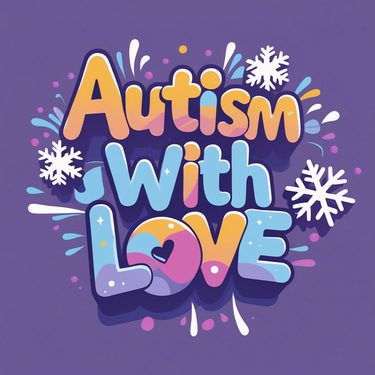Hidden Autistic Spectrum: Why Diagnosis Comes Late for Black and Brown Communities
For individuals in Black and Brown communities, the journey to an autism diagnosis is often protracted, fraught with systemic barriers, cultural misunderstandings, and implicit biases. This delay in identification carries significant long-term consequences, impacting access to vital interventions and shaping life trajectories. Understanding these disparities is the first step toward forging a more equitable path to diagnosis and support.
AUSTISM SUPPORT
W.Love
7/10/20253 min read


Research consistently highlights a concerning trend: Black and Brown children are diagnosed with autism significantly later than their white counterparts. A study published by the Child Mind Institute notes that Black children, on average, receive an ASD diagnosis three years after parents first voice concerns to their pediatricians. This delay is not merely a matter of chance; it's a symptom of deeper, systemic issues within healthcare and societal structures.
The Intersecting Web of Barriers
Several factors contribute to these late diagnoses, creating a complex web of challenges for Black and Brown families:
Systemic Bias in Healthcare: The framework for ASD evaluations has historically been rooted in research primarily involving white, middle-class children. Implicit biases can lead healthcare providers to misinterpret behaviors, dismissing parental concerns or attributing them to other issues, such as behavioral problems or even intellectual disability, further delaying proper assessment. As one parent shared in a SPARK for Autism project study, some professionals appear to be "passing off behaviors that Black children display as 'a Black thing,'" demonstrating a clear lack of culturally competent understanding.
Cultural Perceptions and Stigma: Within some Black and Brown communities, there can be deeply ingrained cultural beliefs and stigmas surrounding mental health and developmental disorders. Autism may be misunderstood, viewed with shame, or even seen as a "punishment" or a sign of poor parenting. The reluctance to discuss developmental concerns openly can create a powerful barrier to early intervention.
Lack of Culturally Competent Care: A significant issue is the dearth of healthcare professionals trained in culturally competent care. Professionals who are unaware of cultural nuances may misinterpret certain behaviors, leading to incorrect diagnoses or inappropriate treatment. Moreover, the lack of racial representation within mental and behavioral health fields can leave minority families feeling unheard, unsupported, and distrustful of the system.
Socioeconomic Disadvantages and Access to Resources: Poverty and socioeconomic disparities disproportionately affect Black and Brown communities, impacting access to quality healthcare and educational resources. Diagnostic evaluations can be time-consuming and expensive, and the scarcity of specialists in underserved areas often forces families to travel long distances, incurring additional costs and logistical challenges. Language barriers further compound these difficulties for many Hispanic families, making it hard to navigate complex medical systems and communicate effectively with providers.
The Profound Impact of Delay
The consequences of a late autism diagnosis are far-reaching and can significantly impact an individual's life trajectory. Early intervention is crucial for individuals with ASD, as it provides targeted therapies that can improve communication, social skills, and behavioral regulation. When diagnosis is delayed, children miss out on these critical interventions during formative years, which can lead to:
Increased Challenges in Social and Academic Development: Without early support, individuals may struggle more acutely with social interactions, understanding social cues, and managing sensory sensitivities, affecting their ability to thrive in school and social settings.
Misdiagnosis & Inappropriate Treatment: Repeated misdiagnoses can lead to treatments that are not only ineffective but potentially harmful, diverting resources and time away from the appropriate support.
Emotional & Psychological Burden: The undiagnosed autistic individual may experience chronic frustration, anxiety, and feelings of isolation, grappling with challenges they don't understand and for which they receive no tailored support. Families, too, bear a heavy emotional and financial burden navigating a confusing and often unsupportive system.
Moving Towards Equity and Early Identification
Addressing these systemic inequities requires a multifaceted approach. It is crucial to:
Increase Cultural Competency Training: Healthcare providers must receive comprehensive training on cultural sensitivity and how autism symptoms may present differently across diverse populations.
Expand Access to Resources: Investment in diagnostic services and early intervention programs is vital, especially in underserved Black and Brown communities. This includes ensuring affordable and accessible services and increasing the number of culturally diverse professionals.
Empower Communities with Information: Raising awareness about autism and its signs within Black and Brown communities, using culturally relevant and accessible language, is paramount. This can help dismantle stigma and encourage earlier conversations about developmental concerns.
Support and Advocate for Families: Creating strong support networks for Black and Brown families navigating autism, perhaps through community centers or faith-based organizations, can provide invaluable guidance and reduce feelings of isolation. Advocacy for policy changes that address systemic discrimination in healthcare is also essential.
The journey to an autism diagnosis for Black and Brown communities should not be an uphill battle. By acknowledging and actively dismantling the barriers that exist, we can ensure that every individual, regardless of their background, receives timely and appropriate support, enabling them to reach their fullest potential. This is not just about healthcare equity; it's about social justice.
References:
Child Mind Institute. (2025, February 17). Why Do Black Children With Autism Get Diagnosed Late?
SPARK for Autism. (2025, April 1). Black Families in SPARK Reveal Barriers to Autism Help.
